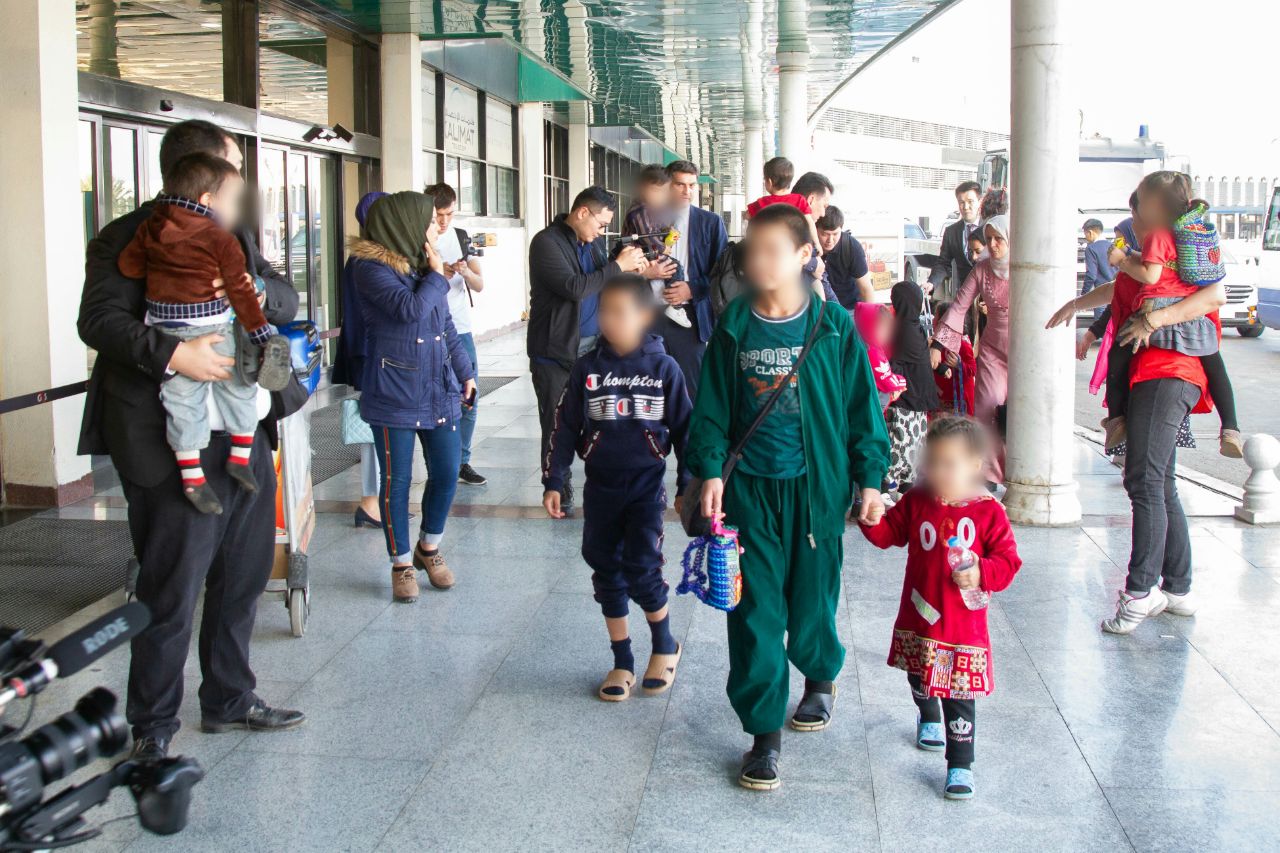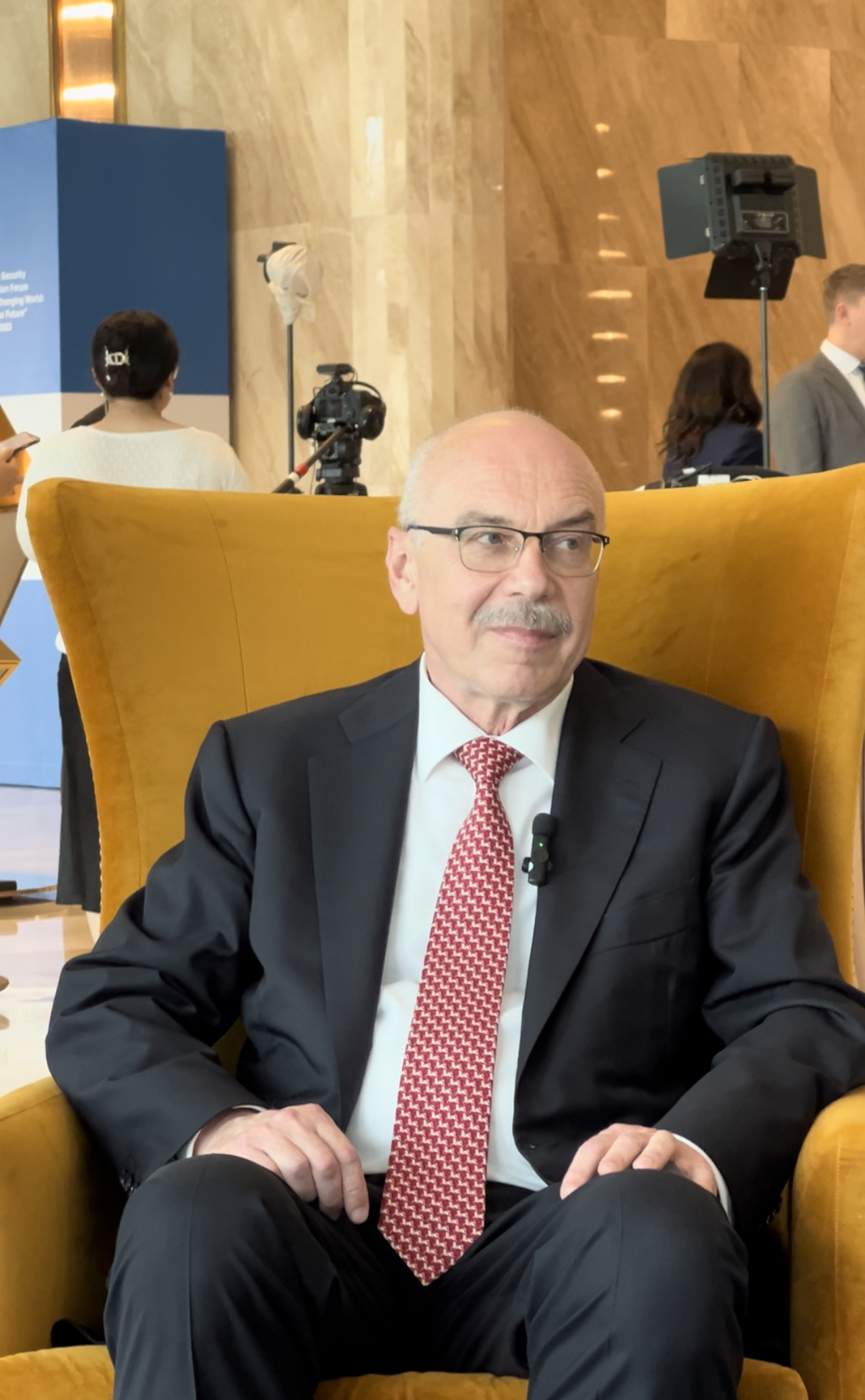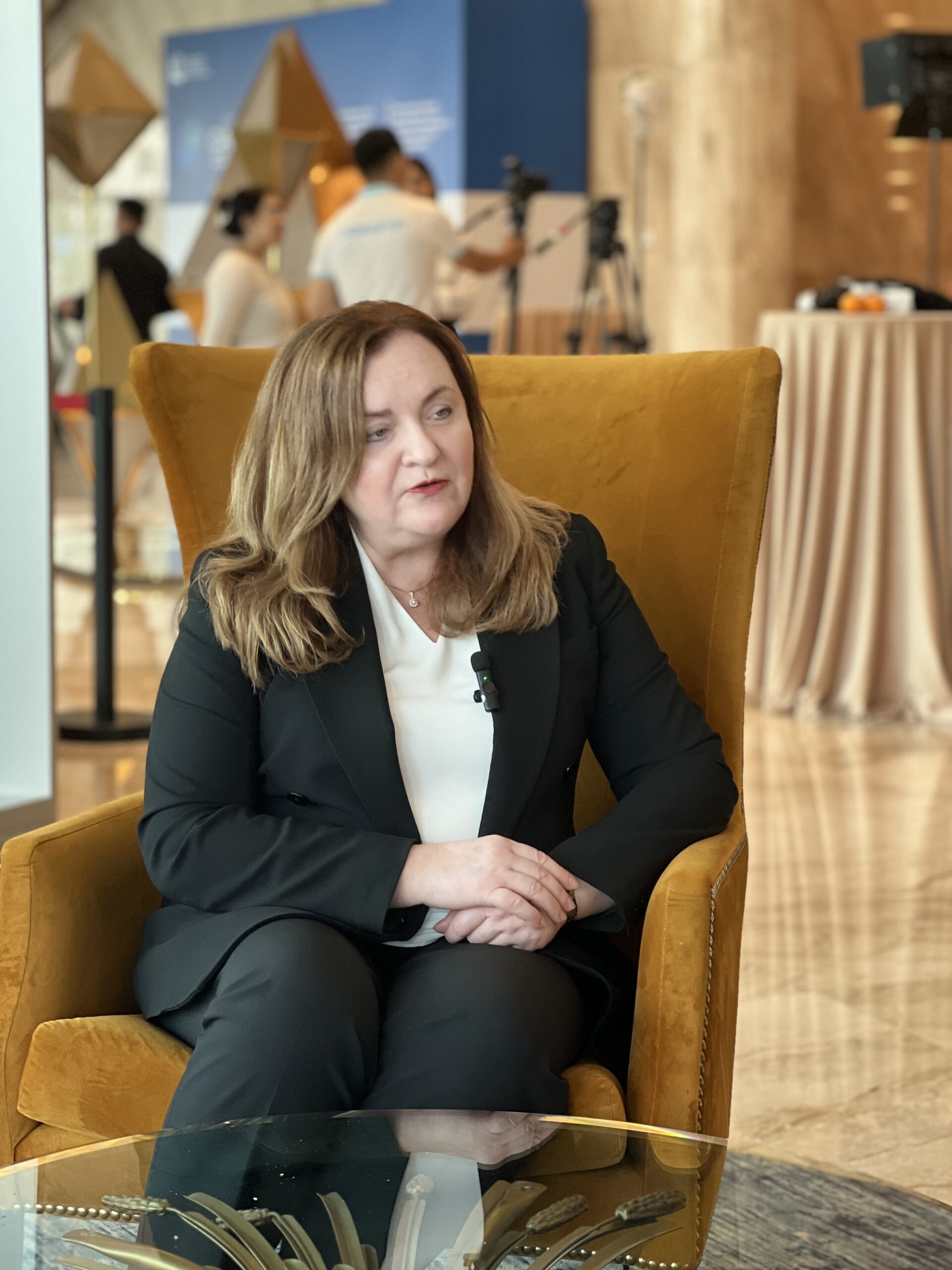ASTANA – Vladimir Voronkov, Under Secretary-General of the UN Counter-Terrorism Office, and Natalia Gherman, Assistant Secretary-General and Executive Director of the UN Counter-Terrorism Committee Executive Directorate, commended Kazakhstan’s efforts to counter terrorism in an exclusive interview with The Astana Times on July 14.

Kazakhstan repatriated 14 children from Iraq in 2019 as part of the Jusan operation. Photo credit: Assel Satubaldina/The Astana Times.
They addressed the recent updates to the Joint Action Plan (JPoA) for the Implementation of the UN Global Counter-Terrorism Strategy in Central Asia, signifying the country’s commitment to combating terrorism effectively.
A key partner for UN in combating terrorism
Kazakh President Kassym-Jomart Tokayev received the two UN officials in Astana on July 14, where the President reaffirmed that Kazakhstan remains committed to the UN principles.

Vladimir Voronkov. Photo credit: The Astana Times.
“It was a very sincere discussion about how to develop good cooperation between Kazakhstan and the United Nations. Of course, the President expressed the full adherence of Kazakhstan to all the United Nations principles and norms,” said Voronkov. He and Gherman visited Astana to participate in the first Central Asian Security and Cooperation Forum on July 13-14, organized by the Kazakhstan Institute of Strategic Studies under the President of the country.
Voronkov said Kazakhstan is a leading ally in the UN’s efforts against extremism in the region.
“In our hectic times of geopolitical divides, this obvious support for the activities of the United Nations is very important. It’s also very important that the principle of multilateralism is supported very strongly by the leader of the Kazakh state. It’s a very encouraging signal for us, and for the whole system to work very closely with Kazakhstan. It can be said that Kazakhstan is a leader in the United Nations system on a number of issues, including countering terrorism,” he said.
The two sides pledged to continue their strong cooperation on the counterterrorism agenda.
Voronkov was joined by Gherman, who described the relationship between Kazakhstan and the UN as “very dynamic.”
“We know that we can always rely on Kazakhstan for national, regional and also global initiatives that Kazakhstan is very actively promoting,” she said.
“As far as the cooperation in counterterrorism is concerned, there was great progress achieved by Kazakhstan in recent years in the implementation of the relevant Security Council resolutions that deal with different aspects of counterterrorism. The progress was achieved at both the policy level and the implementation of the relevant decisions,” added Gherman.
Implications of Jusan humanitarian operation
One of Kazakhstan’s major initiatives, the Jusan humanitarian operation in 2019-2021, facilitated the repatriation of 595 Kazakh citizens from Syria, mostly children and women. The country has been providing comprehensive assistance to these citizens, who returned from the conflict zone, while the men are being prosecuted for participating in a foreign war.
Repatriation of citizens is a highly sensitive issue for many countries, but Kazakhstan’s case might send a message to other states to facilitate the safe and dignified repatriation of their nationals, according to Voronkov.
“To help these people and to help the international community solve this issue of detainees in Syria and Iraq, which is a legacy of Da’esh [also known as ISIL or ISIS] in these regions, is a strong commitment of any country. So it’s very important that Kazakhstan is paving the way in this regard for the whole international community,” he said.
“Kazakhstan has repatriated close to 100% of its children and women that entered the camps. It’s not a very common story in the current world. A lot of countries refrain from this practice because they’re not prepared to prosecute fairly, to rehabilitate them and to reintegrate these people into society. So it’s a very important example of leadership and commitment,” he added.
Kazakhstan’s repatriation efforts set an unprecedented example for the world, said Voronkov.
“I think we need to make additional efforts to show to the international community and to the United Nations family that Kazakhstan’s experience should be taken on board and should be implemented in different countries, taking into consideration national specifics. But as a general trend, it’s a very good example and a strong trigger to many member states. We did propose to the President of Kazakhstan to think together about how to spread this good experience globally,” he said.
Updates in Joint Plan of Action
Kazakhstan and the UN have been advancing efforts in counterterrorism activities through the JPoA for Central Asia, the first edition of which was launched in 2011.

Natalia Gherman. Photo credit: The Astana Times.
The strategy framework based on the UN Global Counter-Terrorism Strategy has incorporated policy guidance and implementation that aims to facilitate comprehensive, holistic, and coordinated efforts.
“In 10 years of its exploration and implementation, the countries of the region have achieved significant progress,” said Gherman.
“I would like to mention straightforwardly that this plan of action on a regional level remains unique in the world. There is no other region in the world that has this regional effort to implement common tasks that are being formulated by all of us by virtue of the Global Counterterrorism Strategy,” highlighted Gherman.
Dealing with the multi-faceted threat of extremism requires an equally complex approach. The updated JPoA has therefore been adopted in 2022.
New areas of cooperation that focus on coordinating a response to newly emerging terrorist threats have been added to the updated plan.
“First and foremost, the states of the region decided to create an early warning network among themselves, which is a very innovative idea. The states in real-time decided to share all the information about new and emerging threats to their security, provide more areas of cooperation between the law enforcement segments that are mainly involved in this work within the countries themselves, and, of course, align even more the legislation on counterterrorism,” said Gherman.
The countries of the region have updated their national strategies and had them aligned with each other as well, said Gherman. “If the countries are analyzing the nature of threats in the same way, then it is much easier to combat and prevent these threats together,” she added.
Society, families and women have a powerful role to play in preventing extremism. It is why the updated action plan included a more holistic approach, Gherman added.
“In the new edition of the Joint Plan of Action, the special focus is made on the approach of the whole government and society, meaning that there will be more work, particularly at the level of prevention based on the resourcefulness of communities, families, activists, even religious leaders, our civil society partners in analyzing the nature of the threat,” she said.
“In Kazakhstan, as in other Central Asian states, this is a very natural way to address any societal problem, because of the structure of the family, community, and the role of women. Detecting early warning signs of radicalization of children and young people is actually very well developed by definition. There is a tradition to place more importance on the role of the family and the community,” added Gherman.
Central Asian cooperation in counterterrorism
The Central Asian region is ahead in the efforts to repatriate its nationals, and Kazakhstan’s contribution to this issue is pivotal, according to Gherman.
“Central Asian states are leading the way on the global stage in repatriating their own citizens, and manifesting important efforts in reintegrating these citizens back into their original societies,” said Gherman.
“I also want to mention that Kazakhstan, in particular, is leading the way in prosecuting those returned foreign terrorist fighters who were engaged in terrorist crimes outside of the country of origin. This is also a very useful experience that Kazakhstan is ready to share with its neighbors and with other countries in different parts of the world,” she added.
She also commended the presence of a common vision and a unified strategy in the region.
“I’m very happy that in Central Asia, the countries themselves understand that they are stronger together and that only by joint effort and a very well-coordinated approach will they achieve success in preventing and fighting the threat of terror and violent extremism conducive to terrorism. The United Nations entities will remain very committed to helping the Central Asian states in achieving more progress along the way,” said Gherman.
